“B” Extra Documentation
Morgan Gardner Bulkeley
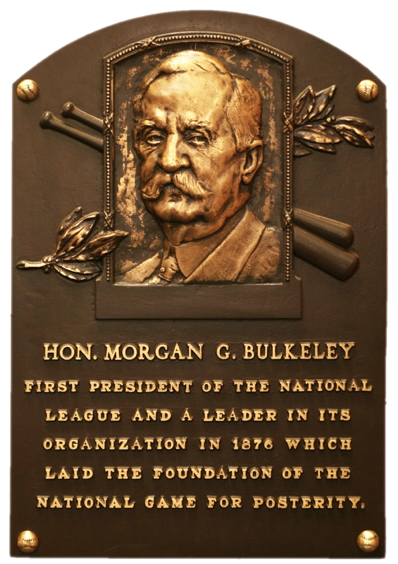 Morgan Gardner Bulkeley was born in East Haddam, Connecticut on December 26, 1837 the third child of Eliphalet Adams Bulkeley and Lydia Smith Morgan. Many of his early days were spent in Colchester where most of his relatives lived and throughout his lifetime he considered Colchester the “home” of the Bulkeley family.
Morgan Gardner Bulkeley was born in East Haddam, Connecticut on December 26, 1837 the third child of Eliphalet Adams Bulkeley and Lydia Smith Morgan. Many of his early days were spent in Colchester where most of his relatives lived and throughout his lifetime he considered Colchester the “home” of the Bulkeley family.
In 1847, after the family moved to Hartford, he attended local public schools. In 1851, at the age of 14, his formal education ended and he went to work in his uncle’s store in Brooklyn, New York where he became a partner at the age of 21.
When the Civil War broke out he volunteered and served under General McClellan and fought in the Peninsular Campaign with the Army of the Potomac. In 1872, Morgan returned to Hartford, Connecticut after the death of his father, Eliphalet, where he founded the United States Bank, which he headed until 1879. At that time, he became President of the Aetna Life Insurance Company.
At this time, he also became the principal backer of the National Association’s “Hartford Dark Blues” baseball team. The National Association was replaced by the National League in 1876, which helped to solidify professional baseball in the United States. The Hartford Dark Blues remained in the league as a charter member. A drawing was held to determine the first president of the new league, and Bulkeley’s name emerged first. This sat well with William Hulbert and Albert Spalding of Chicago, who saw in him the integrity and character needed to drive the league’s acceptance. This made Morgan Bulkeley the National League’s first president. Bulkeley did not wish to devote his full energies to baseball and served only one season. William Hulbert succeeded him, and Bulkeley continued his career heading Aetna and entered politics. In 1937, Bulkeley was elected to the Hall of Fame in Cooperstown, New York.
An active and successful politician, he first served on the Hartford City Council in 1874 and was elected Mayor of Hartford in 1880, serving four two-year terms. In 1888, he was elected Governor of Connecticut and in 1890, after an election dispute where he was not even a candidate, he personally took over running of the Connecticut government for the next two years paying the State’s bills from Aetna’s accounts earning himself the name “The Crowbar Governor”.
In 1896 he was an unsuccessful candidate to be the Republican nominee for Vice President of the United States on the McKinley ticket, and in 1904, Bulkeley was elected to the United States Senate, serving one six-year term. He then returned to Hartford to head Aetna until his death on Nov. 6, 1922.
Bulkeley Bridge, in Hartford, CT was dedicated in Morgan Bulkeley’s name in 1908.
Charles F. Daniels ~ One of the great “Big League” umpires of his day
Charley Daniels (1849-1932) was born and died in Colchester, Connecticut. He was an American umpire in Major League Baseball, and umpired professionally from 1874 to 1889. He was among the original umpires hired when the National League was founded in 1876, and was the last active umpire among that group when he retired after the 1889 season. His served in the National Association (1874-75), the National League (1876, 1878–1880, 1887–1888), and the American Association (1883–1885, 1889), as well as the Eastern League and was a referee in college baseball.
 He called two no-hitters in his career; one was the first no-hitter in major league history, and the other was a perfect game. He is credited with discovering the famous baseball player Connie Mack (whose original name was Cornelius McGillicuddy). He found Connie playing for a Meriden baseball club and giving him a chance with his minor league Hartford baseball team, of which he was then the manager.
He called two no-hitters in his career; one was the first no-hitter in major league history, and the other was a perfect game. He is credited with discovering the famous baseball player Connie Mack (whose original name was Cornelius McGillicuddy). He found Connie playing for a Meriden baseball club and giving him a chance with his minor league Hartford baseball team, of which he was then the manager.
Charles F. Daniels was born in Colchester, Connecticut on March 13, 1849. He was a victim of a hit-and-run accident near his farm in Colchester, and died at Backus Hospital on March 23, 1932, at the age of 83.
Colchester Inter-County League Baseball Champions of 1946
Much has been written about this team, that became the champions of the local intercounty baseball league. The intercounty league included Andover, Columbia, Hebron, Lebanon, Salem, and Colchester. Competition between the town’s teams was fierce and teams throughout the state would venture to Colchester to challenge the renowned league champions. During the war years, baseball became very popular and as league champions, Colchester’s team attracted hundreds of fans to the games that were played on the Town Green.
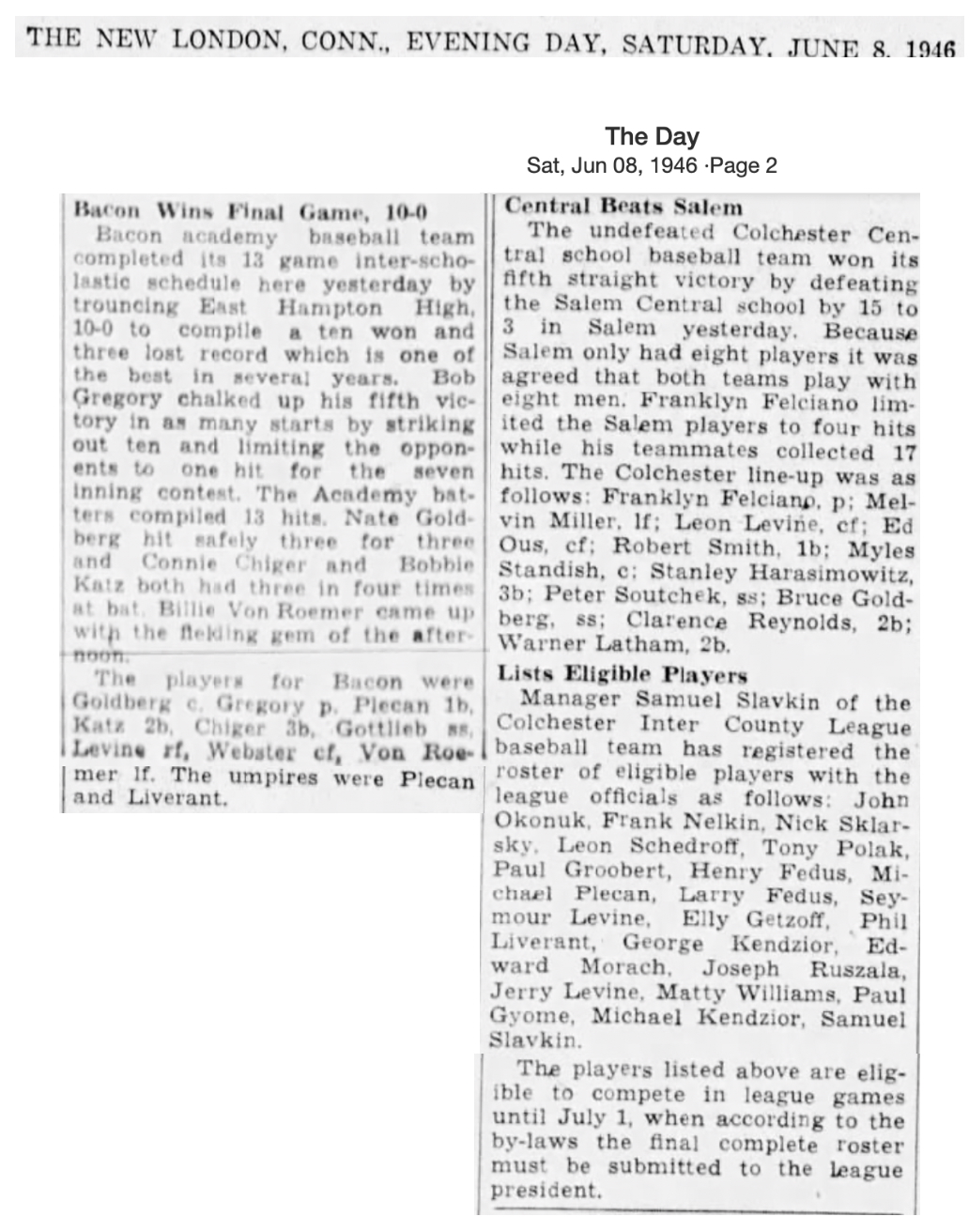
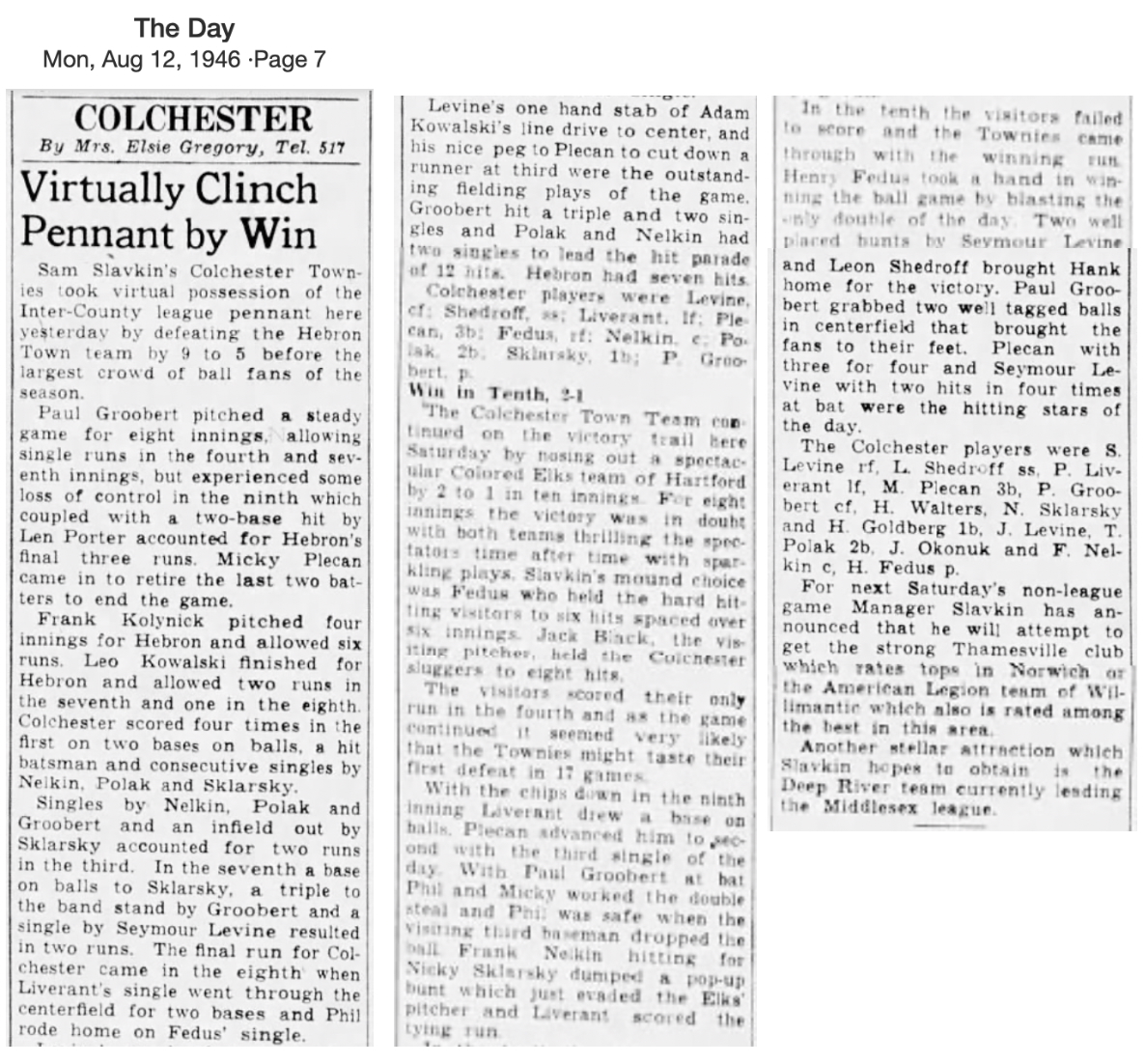
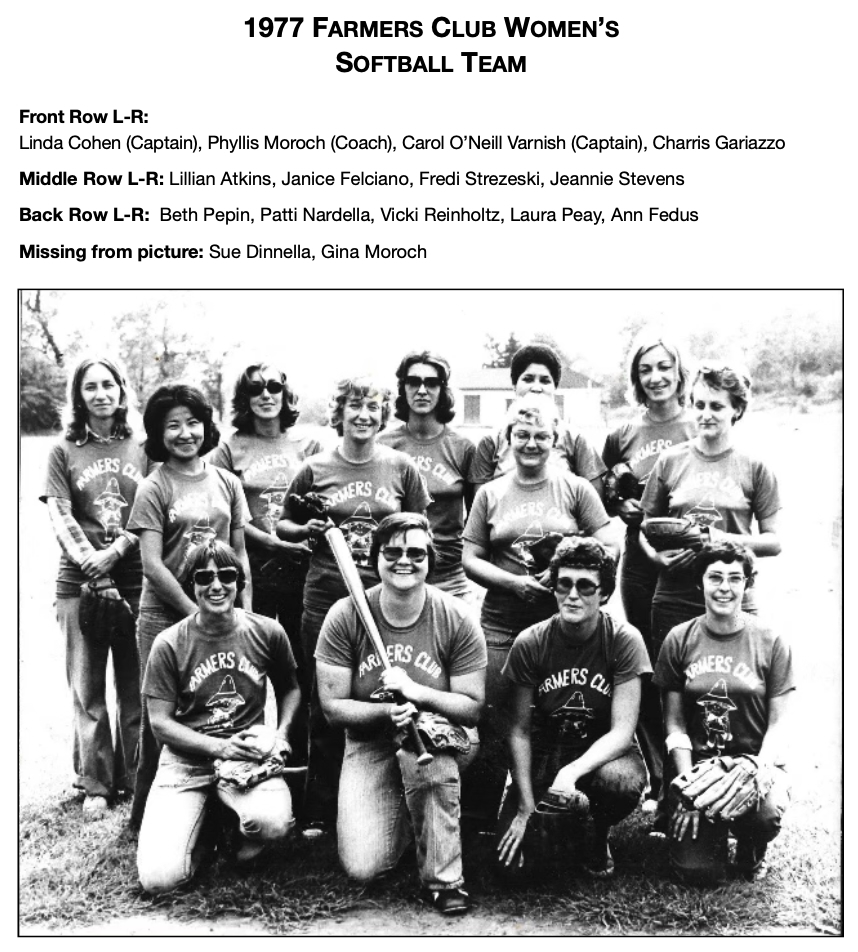
Dave Shea Stayed Home, But Went Far
PUBLISHED/Hartford Courant: March 3, 2011 at 5:00 a.m. | UPDATED: September 15, 2021 at 11:46 a.m.
COLCHESTER – Dave Shea walks a visitor out of the gymnasium named in his honor and stops in front of the Bacon Academy trophy case. Here are the mementos of Shea’s 1981 boys Class S and his 2009 girls Class M state championship teams. Over there is a photo of his son, John, as an All-Stater and farther down is one of his current All-State guard Katie Mahoney. “When Katie walks into that gym,” Shea said Wednesday, “she calls me ‘Coach.’ “ And when Katie walks out of that gym, what does she call you? ”’Grandpa,’ ” Shea said softly.
He finds the newspaper clipping he’s looking for and points through the glass case. It is the 1952 New Haven Register Class C All-State team. There is a photo of Dave Shea, age 18. Dave Shea, 76, smiles. Yes, it was long ago and not very far away. Until he graduated from Bacon to chase a major league baseball dream, his idea of a road trip was being born at Backus Hospital in Norwich.
“Some of my teachers used to tell me if I didn’t bear down a little harder, I probably wouldn’t go very far,” Shea said. “But I didn’t think I’d still be banging around here nearly 60 years later.” “Here” is a relative term, of course, because Shea attended, taught or coached at what he calls “Old Bacon Academy, Middle-Aged Bacon Academy and New Bacon Academy.” That’s what a coach, an educator does when he dedicates his life to his school and his town. He outlives their buildings.
Shea is the only person in Connecticut high school history to win at least 300 games coaching the boys and the girls, a milestone he reached last month. His unbeaten girls team begins its hunt for a second state title in three years tonight against Fairfield Warde. And, oh yeah, after retiring as athletic director in 2000, Shea still coaches boys varsity baseball, too.
“It amazes me,” said John Shea, who played baseball and basketball at UConn before pitching in the minors for 11 years. “He grew up here and people look up to him. But even if he wasn’t winning all these games those same people know him as a good, hard-working, deeply religious guy.”
Dave Shea and Dottie met at Eastern Connecticut and have been married 51 years. John is his assistant coach. Katie’s mom, Mary Ellen, was a standout tennis player in high school. Katie’s brother, Dave, played baseball for Grandpa at Bacon and has gone on to play at UConn. Colchester sports are in the family blood and Dave Shea is in Colchester’s blood. He has coached his town’s sons and those sons’ daughters and in the process, he became a town’s legend.
Yet as he turned away from that 58-year-old photo of himself, it would be a few stories he told that had nothing to do with Colchester that seemed so poignant in his own development. He talked about the day Whitey Piurek, a West Haven legend, and a Dodgers scout, brought him to Ebbets Field. Baseball didn’t have a draft in 1952. Prospects would work out for teams. Before the Dodgers game, Roy Campanella stepped aside to let a young catcher go through pregame infield. Shea looked around. Gil Hodges was on first, Jackie Robinson at second, Pee Wee Reese was at short. “I made a throw down to second; it was a little low,” Shea said. “Jackie Robinson scooped it up and he said, ‘Kid, get ’em up. I got a sore back.’” The immortal Jackie Robinson talked to him. He still signed with the Philadelphia A’s. Shea was moving up pretty fast through the minors, too, after being switched to the outfield. He played in the Georgia-Florida League, the South Atlantic League, got as far as a Triple A contract. “Frank Robinson, Hank Aaron and some others were just breaking in,” Shea said. “I was witness to what those guys had to go through as black players in the Deep South at that time.”
Dave had tremendous athletic strength. John recalled a story how Johnny Egan sat down midcourt at St. Thomas More to perform a feat of strength and accuracy Egan was known for, although it took him 10 tries on this day to sink a shot. Dave went out to midcourt, sat down and made his first shot. A shoulder injury suffered playing basketball one winter at the old SHYMA Club in Taftville, however, changed everything. He went up for a ball and when he came down, he’d never throw nearly as well again. The A’s tried him at first base, but the end of his baseball career was at hand. So was the beginning of the rest of his life.
Shea had attended Eastern Connecticut for three years because in those days you could play NAIA basketball at the same time as pro baseball. He transferred to UConn for a physical education degree and for a time, he helped J.O. Christian as a freshman assistant. He taught a year at RHAM and then the boy found his way home again as a man. Coaching the Bacon boys from 1962 to 1985, he built a 329-168 record. “I took a break to recharge my batteries,” he said. A break meant helping with intramurals, junior high school, etc. He took over the girls team in 1993 with the understanding he’d turn it over to his assistant. She coached only one year before leaving to have a baby. Shea returned in 1995. He hasn’t left.
“Before I took the job coaching the girls, I called Pete Shuler [who had a successful career coaching boys and girls at different state schools]. He told me to run the program exactly the way you do the boys. He told me the girls would appreciate that. I took his advice.” “He did curb it back a little on the halftime emotion,” John said. “But what’s the same is his incredible
attention to detail coaching. You’d think sooner or later he’d get tired of it. He never does.” When the weather turns warmer he walks for miles for exercise. He runs a summer baseball camp. And each summer Dave Shea decides if he’ll continue coaching. “One year moves into another and I don’t think about it too much,” he said. “I realize how lucky I am to be able to do this for so long. I’ve lost some great buddies, great teammates from Bacon over the years. They’re gone now.” Shea catches his emotions for a second and he continues on. In their place are their sons and their granddaughters. Dave Shea has been there to greet them, a legend who outlives buildings.
Dave Shea Honored by Bacon Academy Board of Trustees in 2010
This year, the Bacon Board of Trustees also chose to honor Shea, who coaches baseball and girls basketball at Bacon. He has won more than 600 games as a high school basketball coach, and took the girls' team to a Class M state championship last year. Shea joined the Bacon Academy staff in 1961.
A little more accustomed to the basketball court than the historic cemetery behind the town’s original Bacon Academy building, Shea had a joke ready. “There’s no truth to the rumor that I knew Pierpont Bacon,” he said. Shea also told a story about Lyman Trumbull, a fellow Bacon alum and co-author of the 13th amendment to the U.S. Constitution, which abolished slavery. But he also listened to former Bacon students who praised his role as a coach, mentor, friend, family man and teacher.
Legendary Bacon Academy Coach Elected to Hall of Fame
Hartford Courant 5/5/2023
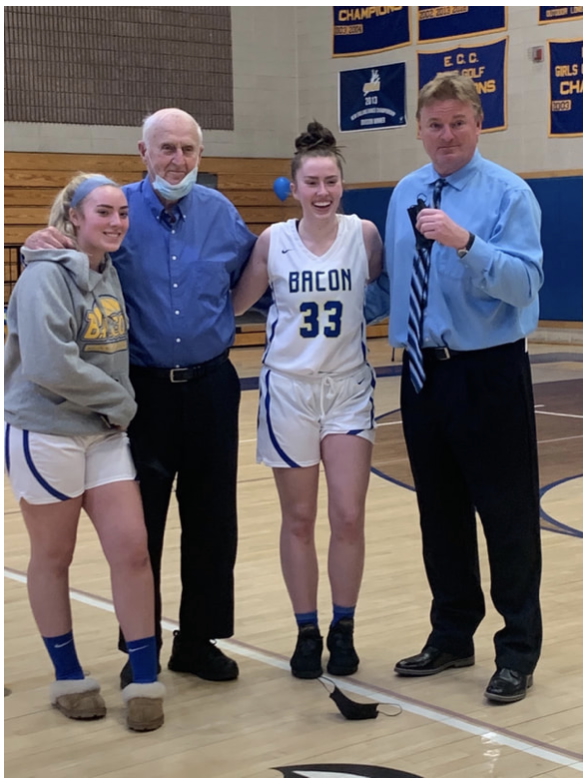 Longtime Bacon Academy head coach Dave Shea was inducted into the Connecticut Women’s Hall of Fame last month. Shea (second to left) is pictured with his son, John Shea, along with his granddaughters Caitlin Shea and Cara Shea following a game in 2021.
Longtime Bacon Academy head coach Dave Shea was inducted into the Connecticut Women’s Hall of Fame last month. Shea (second to left) is pictured with his son, John Shea, along with his granddaughters Caitlin Shea and Cara Shea following a game in 2021.
Dave Shea, a graduate and longtime coach at Bacon Academy, was inducted into the Connecticut Women’s Basketball Hall of Fame on April 23. “Being honored by the prestigious Connecticut Women's Hall of Fame is certainly a highlight of my career,” Shea said in his induction speech at the Cascade in Hamden. “I feel like a pro baseball player that has been playing in the minor leagues for a long time and I’m now getting a call to report to the big leagues.”
A 1952 Bacon Academy graduate, Shea eventually returned to his alma mater and won 778 games and three state championships over 49 seasons on the court, first coaching the boys' basketball team and later taking over the girls' program. In 2000, Bacon Academy honored him while he was still coaching by naming the school’s gymnasium the ‘Dave Shea Gymnasium’.
But long before the gymnasium was named in his honor, Shea was the school’s first 1,000-point scorer in boys’ basketball. Shea credited his high school basketball coach at Bacon, Hal Judenfriend, with helping him develop as a player and into the coach he would later become. “He taught me to respect and appreciate the game, and the virtues of hard work and sacrifice,” stated Shea. Following his graduation from the University of Connecticut, Shea used those lessons and work ethic that Judenfriend instilled in him to become a coaching legend at Bacon. He coached the boys basketball team from 1962-1985, amassing a record of 329-168, including the 1981 Class S championship. Beginning in 1993, Shea coached the girls’ basketball program to a 449-140 record over 25 seasons with state championships in 2009 (Class M) and 2012 (Class L).
Shea joined Bill Reagan (St. Thomas Aquinas boys, Old Saybrook girls) as the second coach in Connecticut history with titles on both the boys' and girl's sides. He credited longtime Westbrook girls basketball head coach Pete Shuler for his advice while he was making the translation between coaching the boys and the girls. Shea recalled Shuler telling him, “Don’t change anything you’re doing basketball-wise for the girls. Basketball is basketball whether you’re coaching boys or girls.” Regardless if Shea was leading the boys or girls, basketball became a family affair. He coached his son John Shea, an all-state player who was on the 1981 championship team. “It’s special,” John said of his father’s career. “He’s the rock star of it all. It’s fun to think about his career and all the people he’s helped.”
Along with his son, Shea coached his granddaughter Katie Mahoney, the 2011 Gatorade Connecticut Player of the Year and the program’s all-time leading scorer, and also coached his granddaughter Caitlin Shea in her freshman and sophomore seasons prior to his retirement. Another granddaughter, Cara Shea, is currently a junior and an all-conference basketball player for the Bobcats.
Shea said family played a major role in his success and thanked his late wife Dorothy, better known as “Dottie”, for her “everlasting encouragement and inspiration.” During his illustrious tenure at Bacon, Shea was much more than a basketball coach. He worked as an educator for nearly four decades, moving from the science department to guidance and later physical education, where he served as athletic director.
Current Bacon Academy athletic director, Kevin Burke, congratulated Shea on his latest hall of fame induction, calling it, “Another well-deserved accolade for a legendary player, teacher, coach and community member of Colchester/Bacon Academy. Dave's leadership at Bacon Academy goes back to his high school years and continues to this day,” added Burke. Along with the latest honor, Shea was also inducted into the Connecticut High School Coaches’ Association Hall of Fame in 2004, to the New England Basketball Hall of Fame in 2009, and was awarded a Gold Key by the Connecticut Sports Writers’ Alliance in 2012.
Shea also was a star on the diamond, signing a pro baseball contract with the Philadelphia Athletics before his career was cut short by injury. He went on to win more than 300 games as the Bobcats’ varsity baseball coach — giving him 300 or more wins in three different sports program at Bacon Academy.
